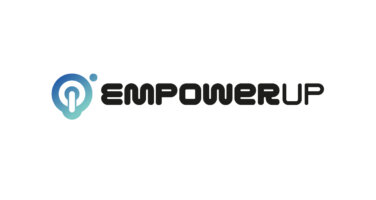The use of pronouns, both in business and in everyday life, has been the subject of much discussion, especially in recent years.
So it’s important to understand why pronouns are important, particularly in the context of the LGBTQ+ community.

Understanding Pronouns
Pronouns are words used to refer to people when their names are not being used. While many are familiar with traditional pronouns like ‘he’ and ‘she,’ it’s important to recognise that pronouns extend beyond binary gender identities. Here are the common pronouns:
- He/Him: Used by individuals who identify as male.
- She/Her: Used by individuals who identify as female.
- They/Them: Used by some non-binary individuals who do not identify strictly as male or female, but also considered gender neutral pronouns.
Why Pronouns Matter
Respecting and using the correct pronouns for individuals is a fundamental aspect of creating an inclusive workplace. Here’s why pronouns are so crucial, especially for LGBTQ+ employees:
- Validation of Identity: Using the correct pronouns affirms an individual’s gender identity and validates who they are. It shows respect for their self-identification.
- Mental Health and Wellbeing: Misgendering, or using incorrect pronouns, can be emotionally distressing for individuals. Inclusive workplaces prioritise mental health and wellbeing, recognising that everyone deserves to be treated with dignity and respect.
- Fostering Trust and Loyalty: When employees feel valued and respected for their authentic selves, they are more likely to be loyal and engaged with their work, leading to higher productivity and lower turnover rates.
- Legal Compliance: Some countries and regions have laws and regulations that protect transgender and gender-diverse individuals from discrimination. Using correct pronouns helps businesses comply with these laws and avoid legal consequences.
Who Uses Pronouns?
Pronouns are not limited to the LGBTQ+ community; everyone uses them. However, it’s important to note that not everyone’s pronouns align with their perceived gender, and this is where the significance of pronouns in the LGBTQ+ community comes into play.
LGBTQ+ individuals, in particular, may use pronouns that differ from the gender assigned to them at birth. Here are some examples:
- A transgender woman may use she/her pronouns, even if she was assigned male at birth.
- A non-binary person may use they/them pronouns to reflect their gender identity outside the binary.
Promoting Pronoun Inclusivity in the Workplace
Here’s how business leaders can create a more inclusive environment:
- Education and Training: Provide training and resources to educate employees about the significance of pronouns and how to use them correctly. Encourage open dialogue and questions to foster understanding.
- Lead by Example: Business leaders should model pronoun inclusivity by respecting and using correct pronouns for all employees. When leaders lead by example, others are more likely to follow suit. And by encouraging everyone to use pronouns, it normalises the practice and sends a strong message of support and allyship to trans, non-binary and other individuals.
- Update Policies and Forms: Ensure that company policies, HR forms, and other documents are inclusive by allowing employees to specify their pronouns. This small but meaningful change can make a significant difference.
- Create Safe Spaces: Establish support networks or affinity groups for LGBTQ+ employees. These spaces can offer emotional support and create a sense of belonging.
Pronouns are an essential component of creating an inclusive workplace for all.. Business leaders who prioritise pronoun inclusivity send a powerful message of respect and support, fostering a more productive and harmonious work environment.
By understanding the significance of pronouns and taking proactive steps to promote their use, businesses can contribute to a more diverse and inclusive future.
Stonewall (https://www.stonewall.org.uk/)has some great guidance on the subject if you would like to read further.
Photo by James A. Molnar on Unsplash



